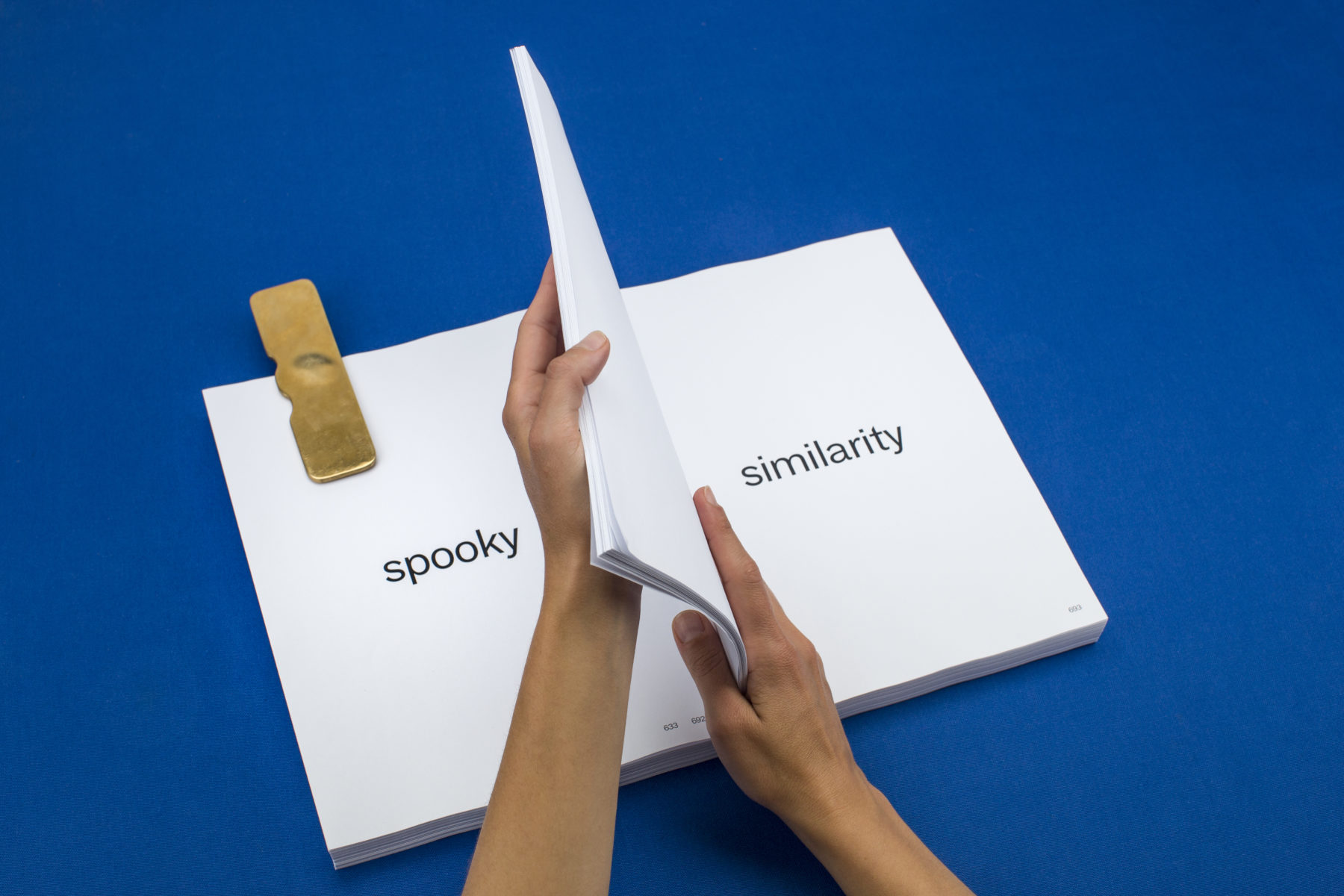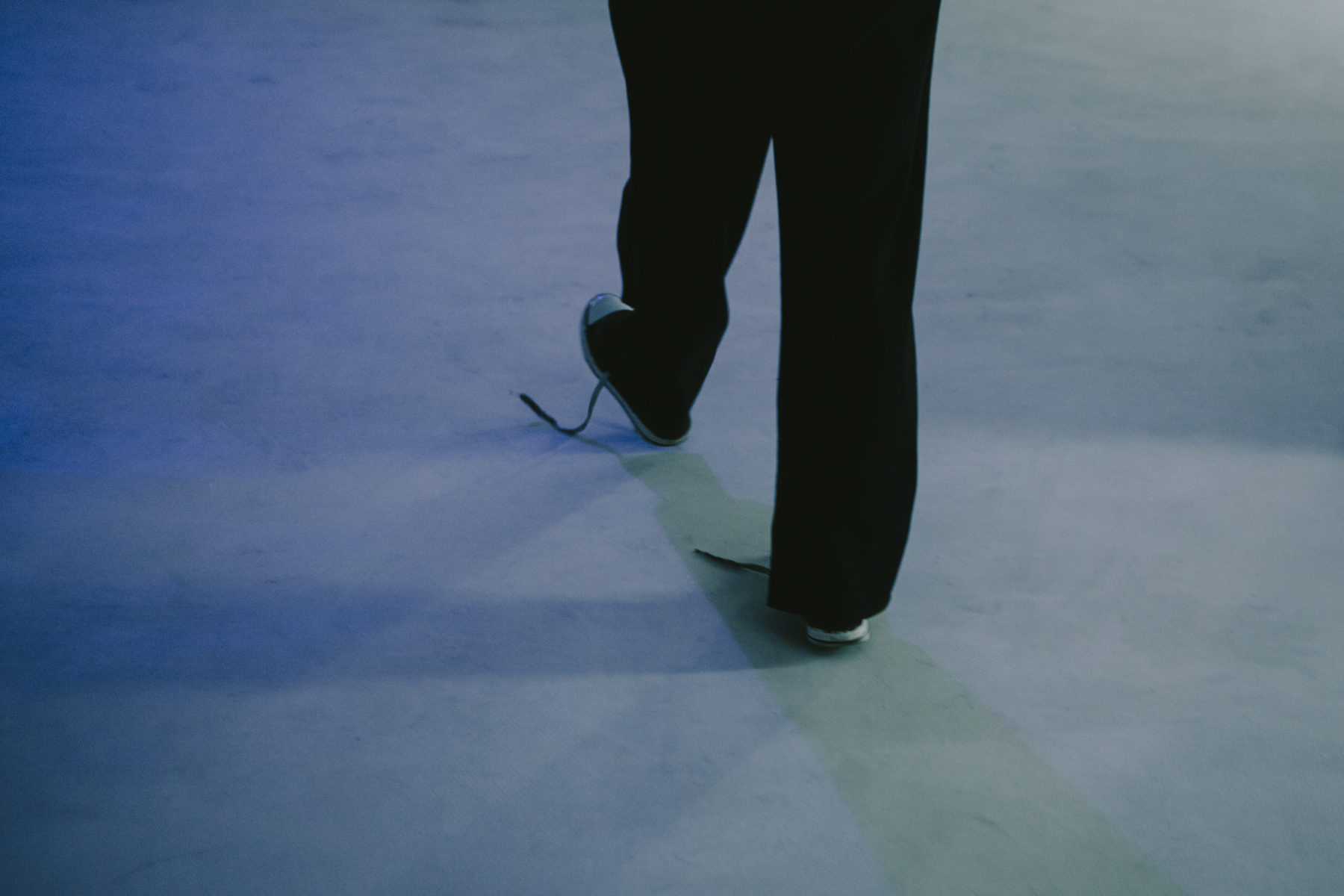
Roman Ondak’s performance Resistance (2006) will be activated during the exhibition openings of Elena Narbutaite’s Light and Inge Grognard’s Eyes.
Courtesy of Kontakt Collection, Vienna, and the artist.
ROMAN ONDAK (b. 1966, Slovakia) lives and works in Bratislava. Ondak’s work is rooted in a performative approach and spans across sculpture, installation, photography, and drawing. His work has previously been a part of the Venice Biennale in the years 2003, 2009, and 2011 as well as dOCUMENTA 13 in Kassel (2012). Recent solo exhibitions include Wish We Were Here, Galerie Martin Janda, Vienna (2024); Roman Ondak. Infinitum, Fundació Antoni Tàpies, Barcelona (2023); Roman Ondak – Measuring the Universe, Pinakothek der Moderne, Munich (2022); SK Parking, Kunsthalle Bratislava (2021); #12 Roman Ondak, mezzaterra 11, Belluno (2018–19); Objects in the Mirror, BASE/ Progetti per l’arte, Florence (2018); and Man Walking toward a Fata Morgana, The Arts Club of Chicago(2017). Ondak’s work is held in various international collections, including the Centre Pompidou, Paris; Kunsthaus Zürich; Tate Modern, London; Neue Nationalgalerie, Berlin; The Museum of Modern Art, New York; and the Slovak National Gallery, Bratislava.


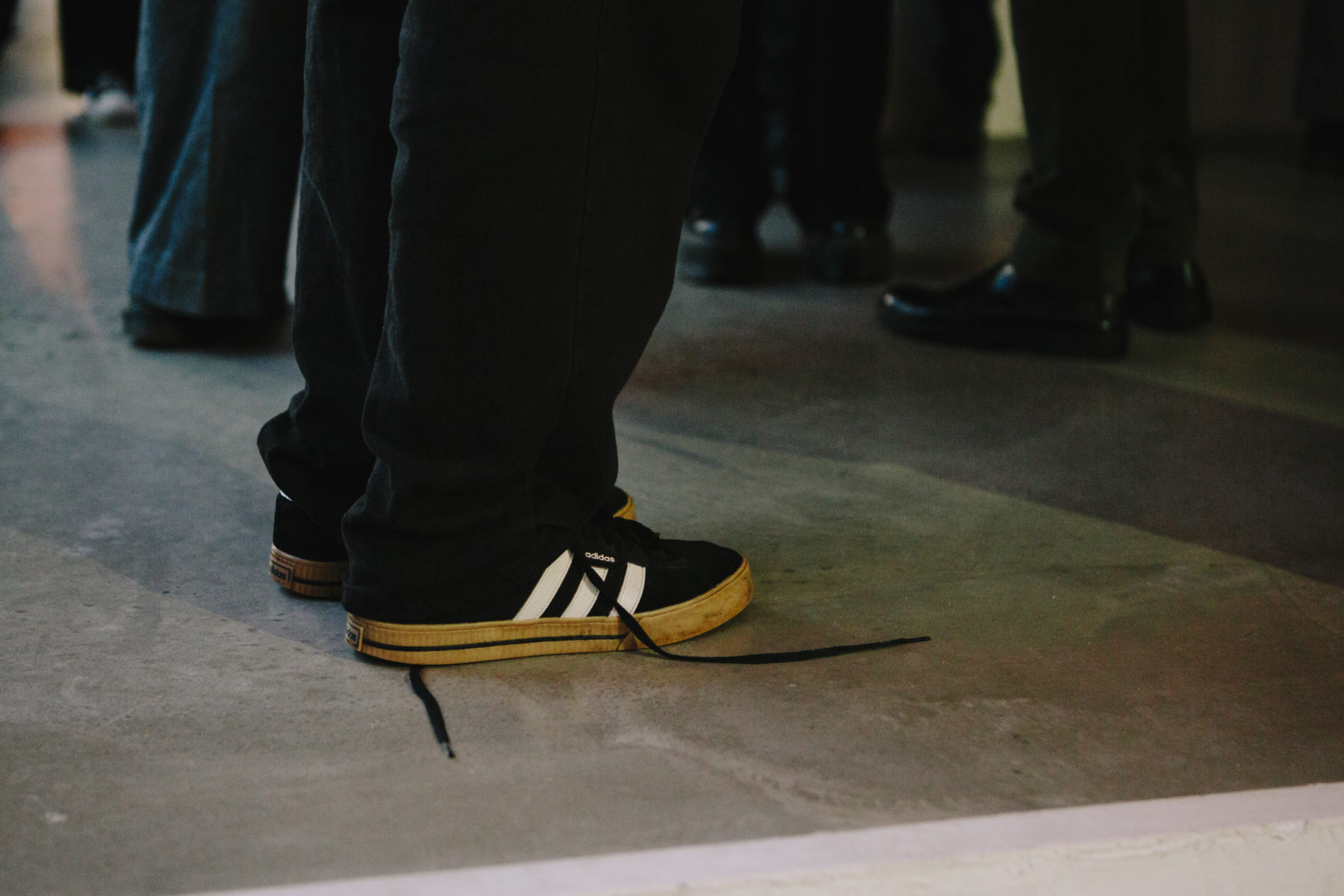
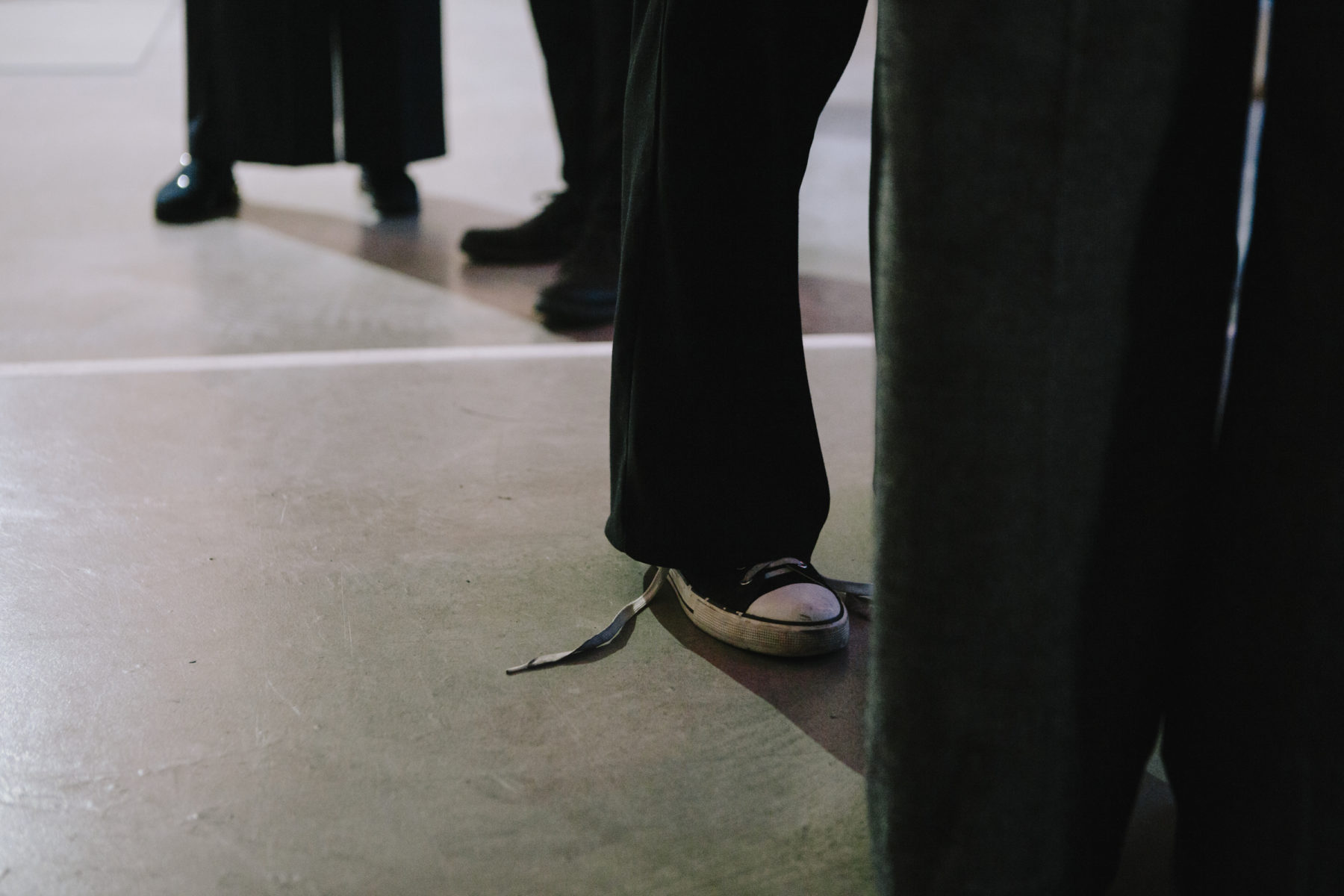
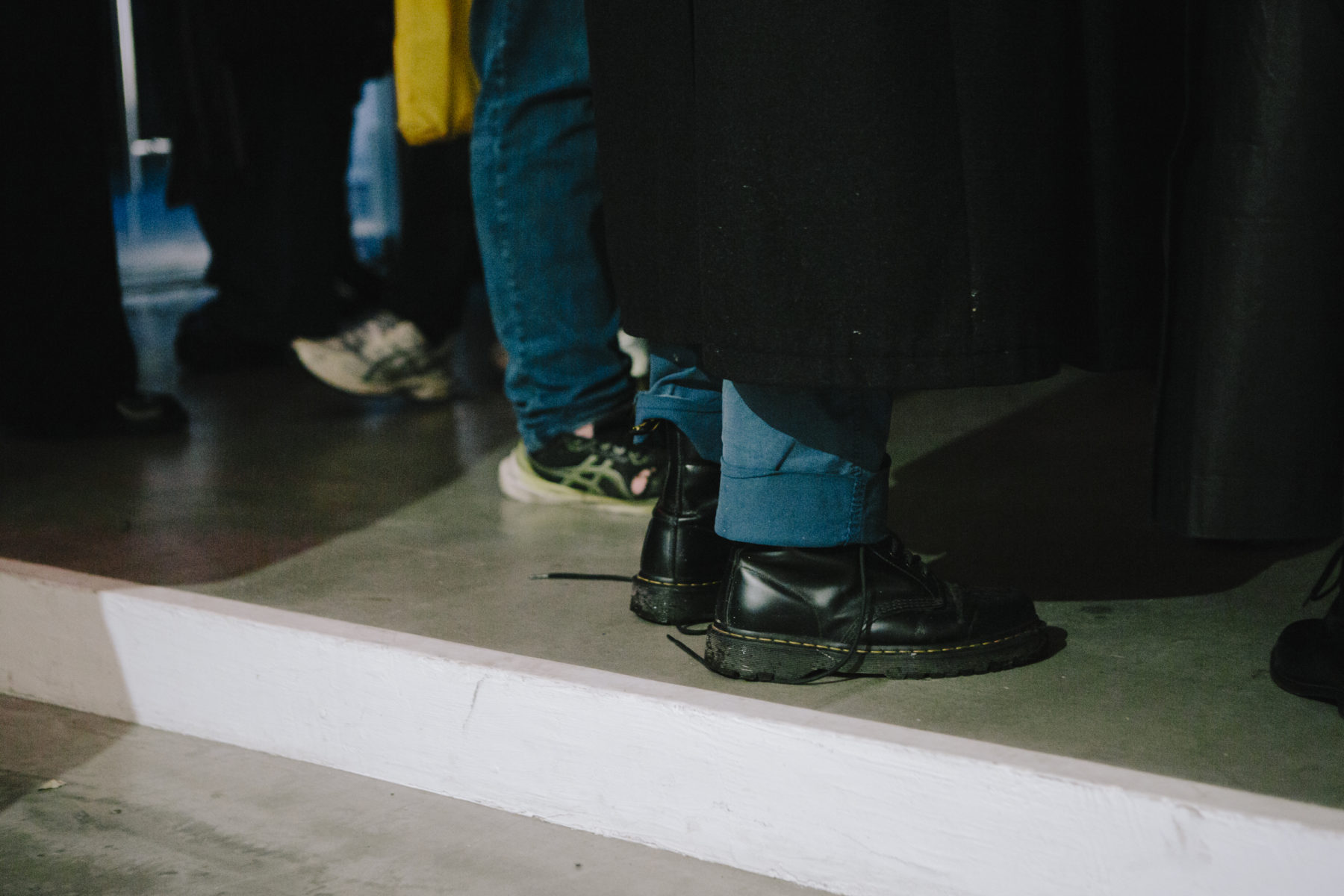

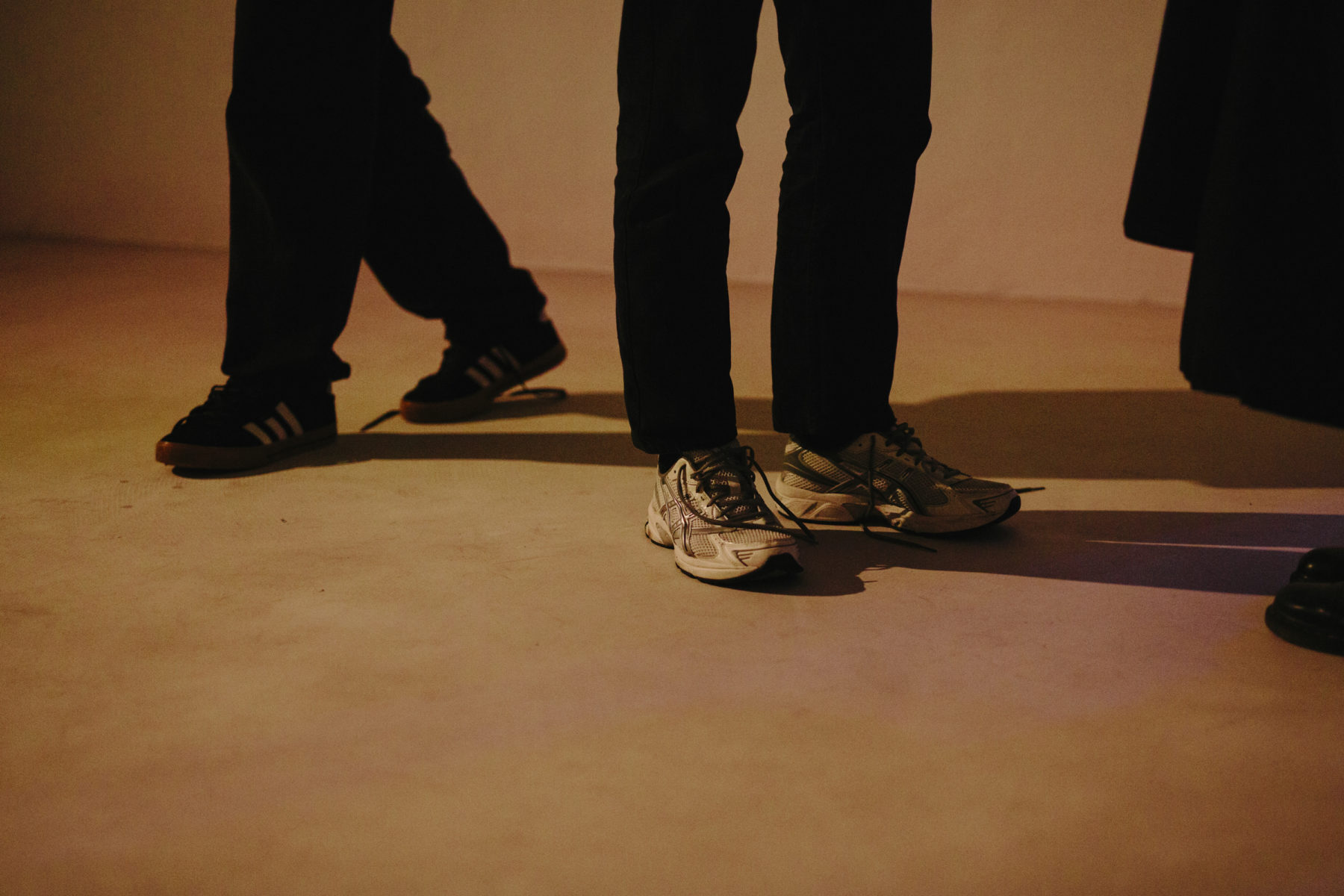

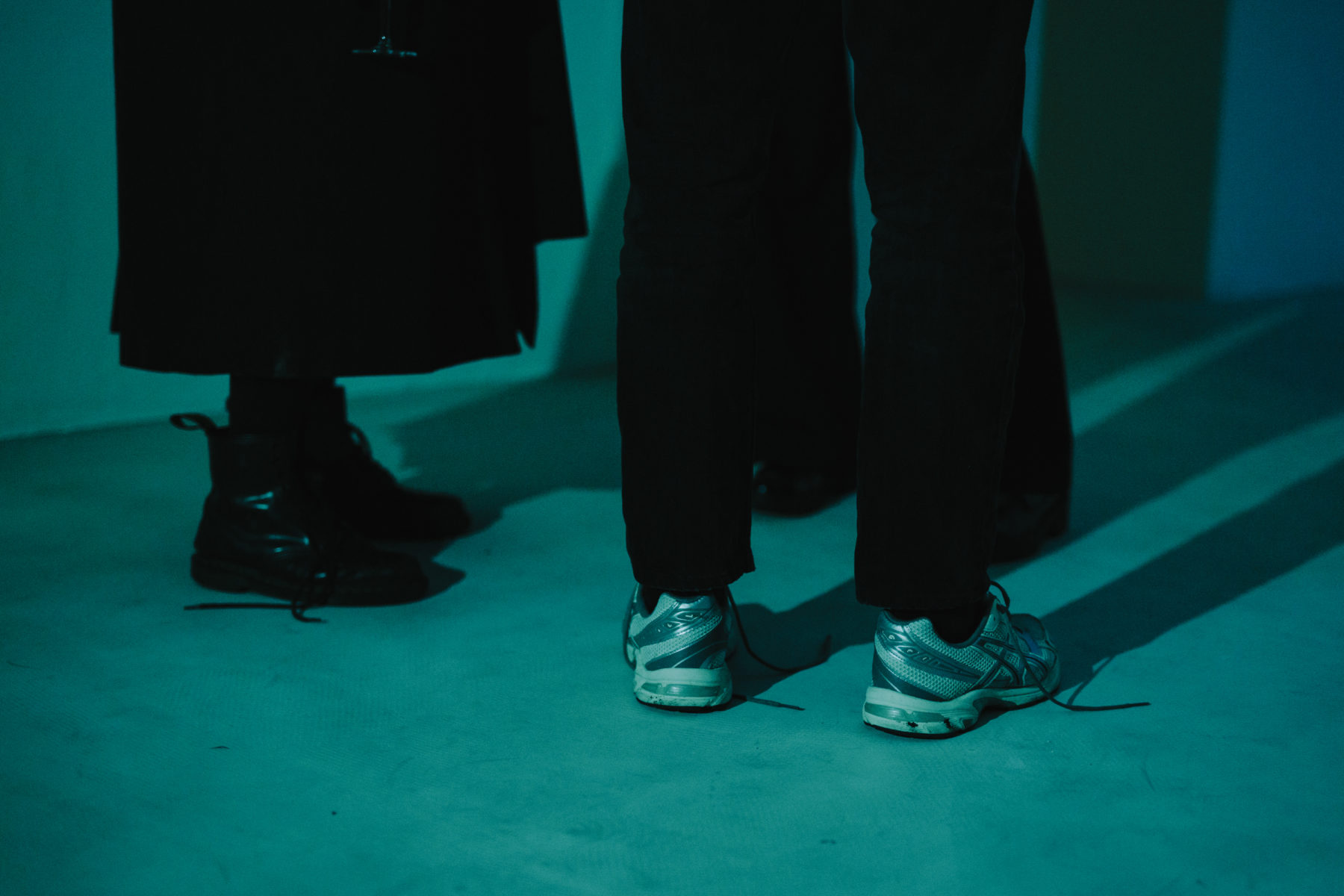


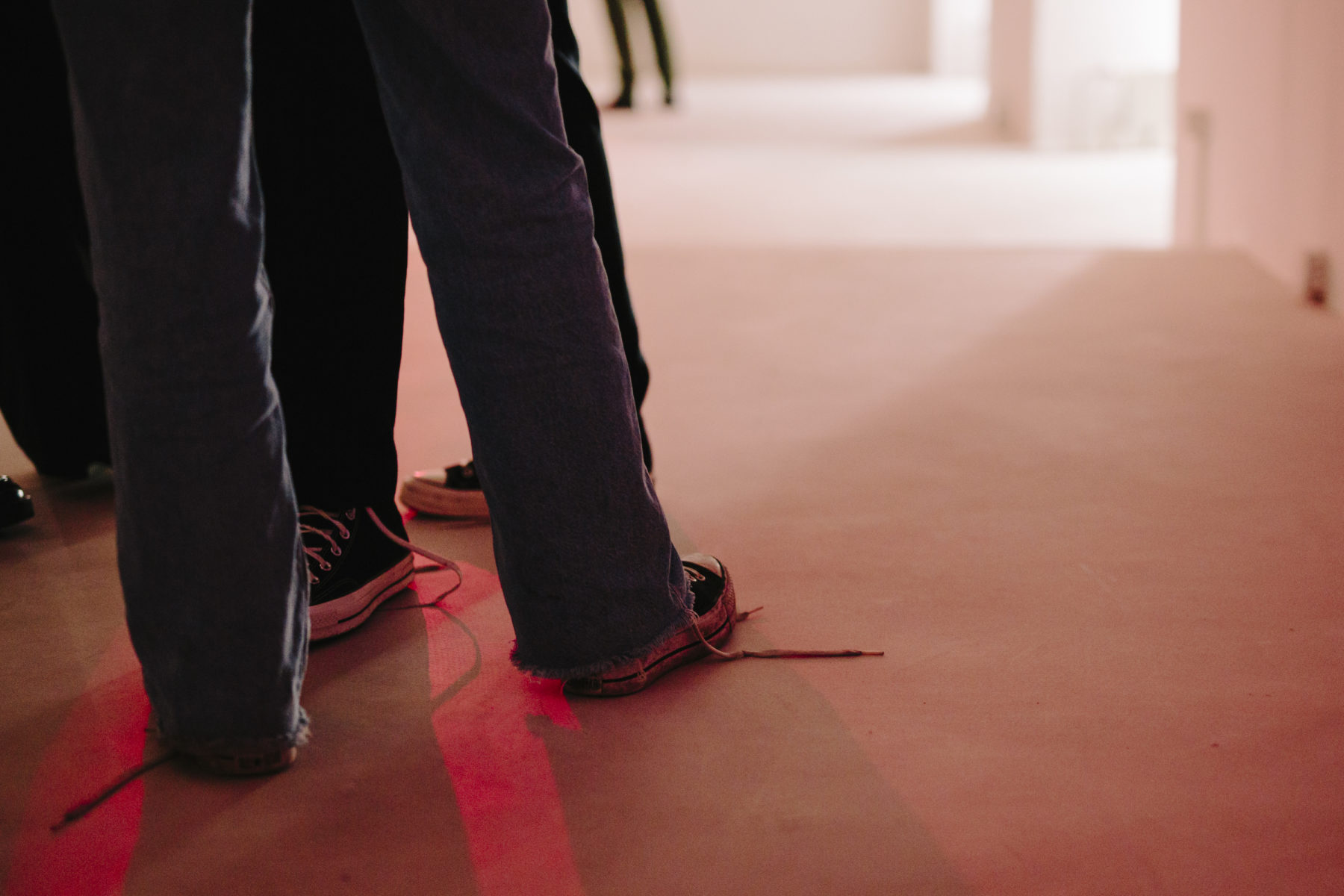
On the occasion of the closing of 2019, Fiction Fiction unfolds as a haunted anticipation—out of sync yet charged with precedent. A photograph of a barricade, the sound of an aura, ultra wet. A poetic juxtaposition, a confluence of dances, movements, almost-thoughts, and gestures drawn from BRUNO (2021) and Death by Landscape (2024), two previous works by Alix Eynaudi, performed together with Hugo Le Brigand.
Here, choreography is an act of reconfiguration—an imprint reanimated, a tender negotiation of presence. Movements drift through a present marbled with memory, where past gestures are not simply repeated but unevenly altered, reassembled, rethought. Words press beneath the skin of dance, an endless reinterpretation, a porous exchange between what was and what remains, between fiction and fiction.
The performance will be introduced by Raimundas Malašauskas on the occasion of the book launch of Suzon: Selected Writings by Raimundas Malašauskas, in which Alix Eynaudi makes an appearance. The book is available here.
Concept: Alix Eynaudi
Dance & choreography: Hugo Le Brigand & Alix Eynaudi
Costumes: An Breugelmans
Music: turf + surf aka Han-Gyeol Lie & Paul Kotal
Duration: 60 minutes
ALIX EYNAUDI dances, works, and writes between craft and chaos, embracing a (mostly) joyful mess. She never works alone; every event, research, or invitation is an alibi to spend time with accomplices—a mesh of friendships shimmering under the skin, a stirring of wonder-filled support. She specializes in choreographic hanging-out sessions. Her most recent works include Death by Landscape, a concert (2024), Institute of Rest(s) (2023), and BRUNO (2021). Her work has been presented at: MACRO, Rome; Tanzquartier, Vienna; Kaaitheater, Brussels; far° festival, Nyon; Xing, Bologna; Biennale di Venezia, Venice; Contemporary Art Centre, Vilnius; brut, Vienna; Volkskundemuseum, Vienna; Wiener Festwochen, Vienna. She lives in Vienna.
HUGO LE BRIGAND delves into dance as a medium for creative encounters and versatile collaborations. He has worked with a diverse range of artists, including Doris Uhlich, Alix Eynaudi, Sebastiano Sing, Daniela Georgieva, Ulduz Ahmadzadeh, and Ari Benjamin Meyers, among others. He is based in Vienna.
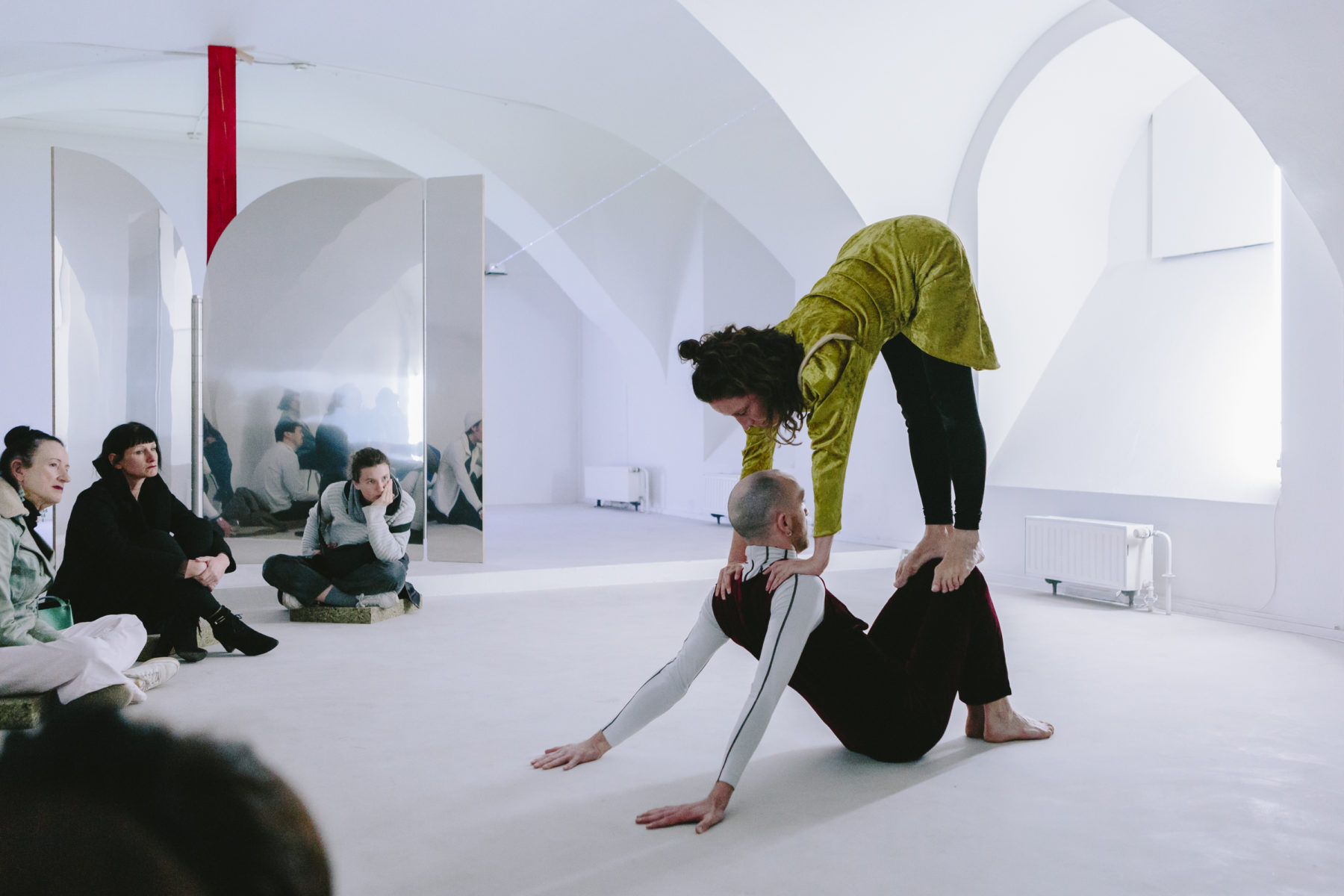
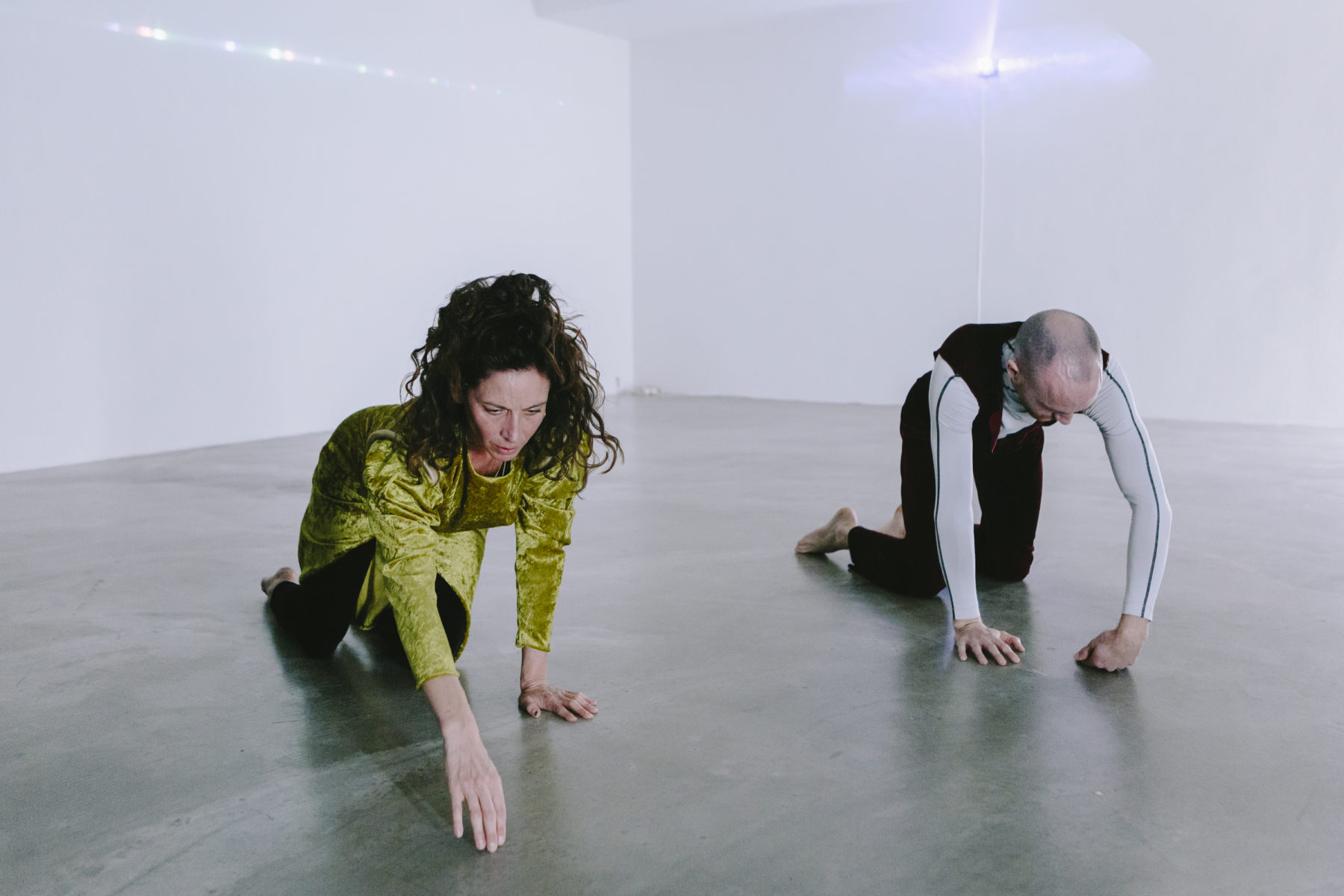
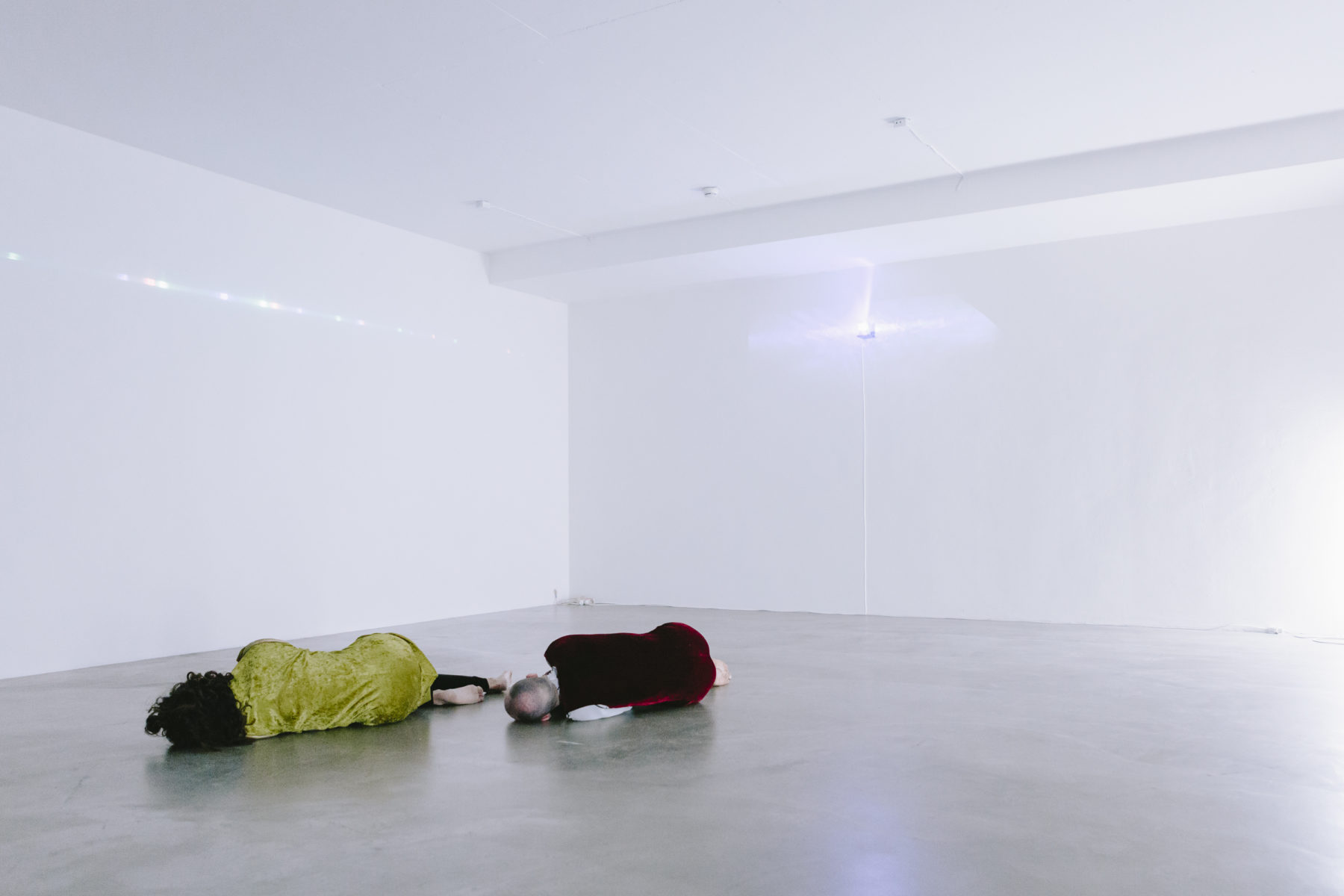
2019 was a transformative and tumultuous year for Ariana Reines. After seven years of dedicated work, her ambitious writing project culminated in the publication of A Sand Book, a 400-page poetry epic, which concludes in a theophany with the sun. Like an enraged Demeter, or a Persephone in denial, Reines had given up her Queens apartment to save her mom from the streets, dragging her in-progress manuscript around the world in a glorified homelessness the contemporary artworld might more politely call “a busy career.” She spoke to strangers and to TV audiences, unintentionally accumulated a colorful array of lovers, enrolled at Harvard Divinity School, and generally lived “as variously as possible” — to quote Frank O’Hara — in the many ways she is known for: connecting cosmic and private dimensions in the most public and touching way, teaching, analyzing ancient texts, reading stars, appearing on TV and recreating in real time what a poet can be.
In her poetry and public performances, Reines strives to communicate with intelligence and spontaneity, channeling her words directly from the heart. Or in her own words: “Our hearts were the bombs whose threat never withdrew.” For 2019: an endurance, Ariana Reines will delve into the profound experiences that shaped her transformative 2019 and explore where those currents have carried her since. The event promises to be a free-flowing improvisation, combining the insights of deep meditation with a direct encounter with the audience.
ARIANA REINES is a poet, playwright, and performing artist from Salem, Massachusetts and based in New York. Her books include The Rose (forthcoming, 2025), Wave of Blood, A Sand Book—winner of the 2020 Kingsley Tufts Award and longlisted for the National Book Award—Mercury, Coeur de Lion, and The Cow, which won the Alberta Prize from Fence in 2006. Her Obie-winning play Telephone was commissioned by the Foundry Theatre with a sold-out run at the Cherry Lane Theatre in 2009. Reines has created performances for the Solomon R. Guggenheim Museum, the Swiss Institute, Stuart Shave/Modern Art, Le Mouvement Biel/Bienne, the Whitney Museum of American Art, and Performance Space New York. She has taught poetry at UC Berkeley (Holloway Poet), Columbia, NYU, and Scripps College (Mary Routt Chair), been a visiting critic at Yale School of Art, and for community organizations including the Poetry Project and Poets House. Her poetry and prose have been published in The New Yorker, Poetry, Artforum, Frieze, Harper’s, and many others. In 2020, while a Divinity student at Harvard, Reines created Invisible College, an online space devoted to the study of poetry, sacred texts, and the arts.

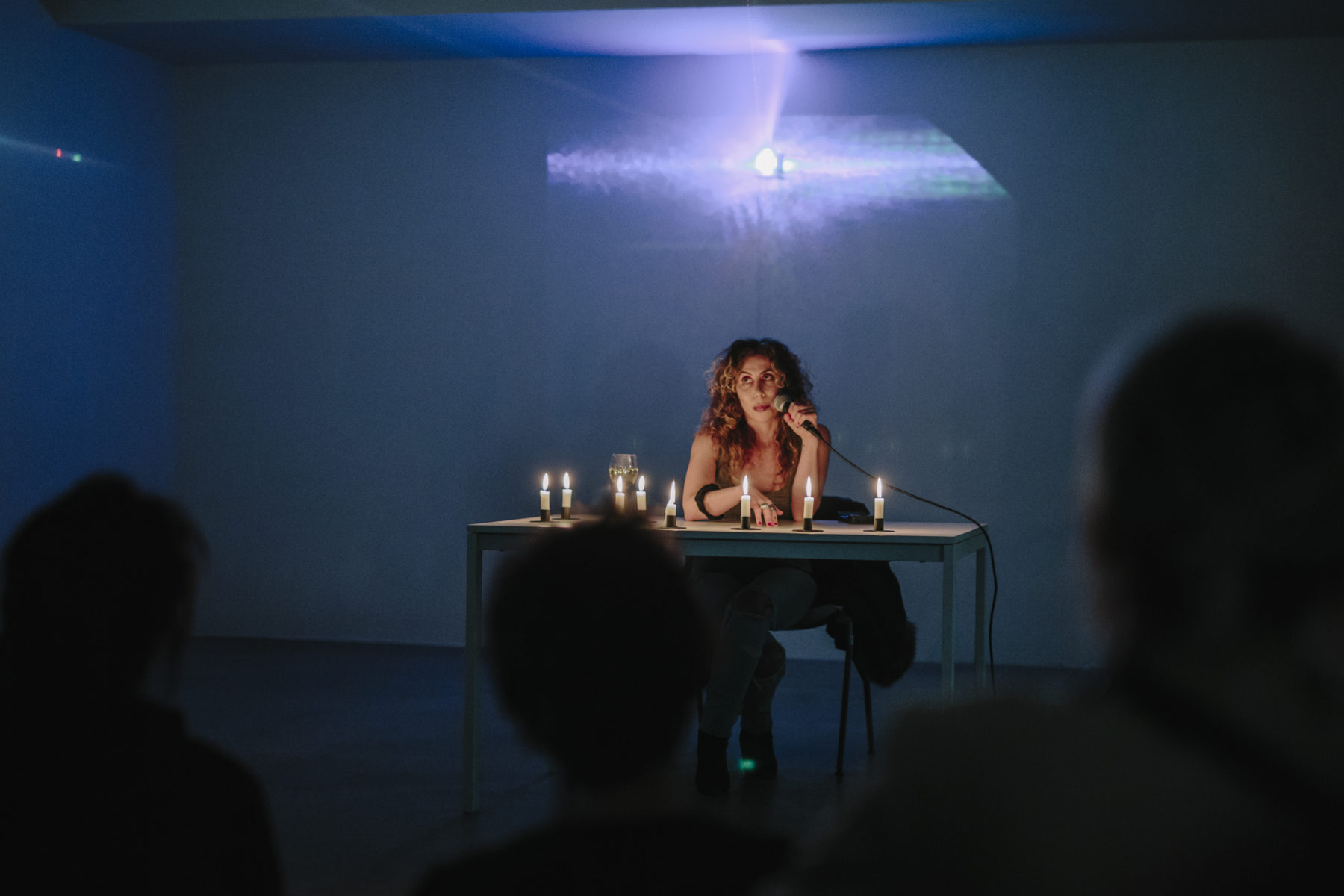
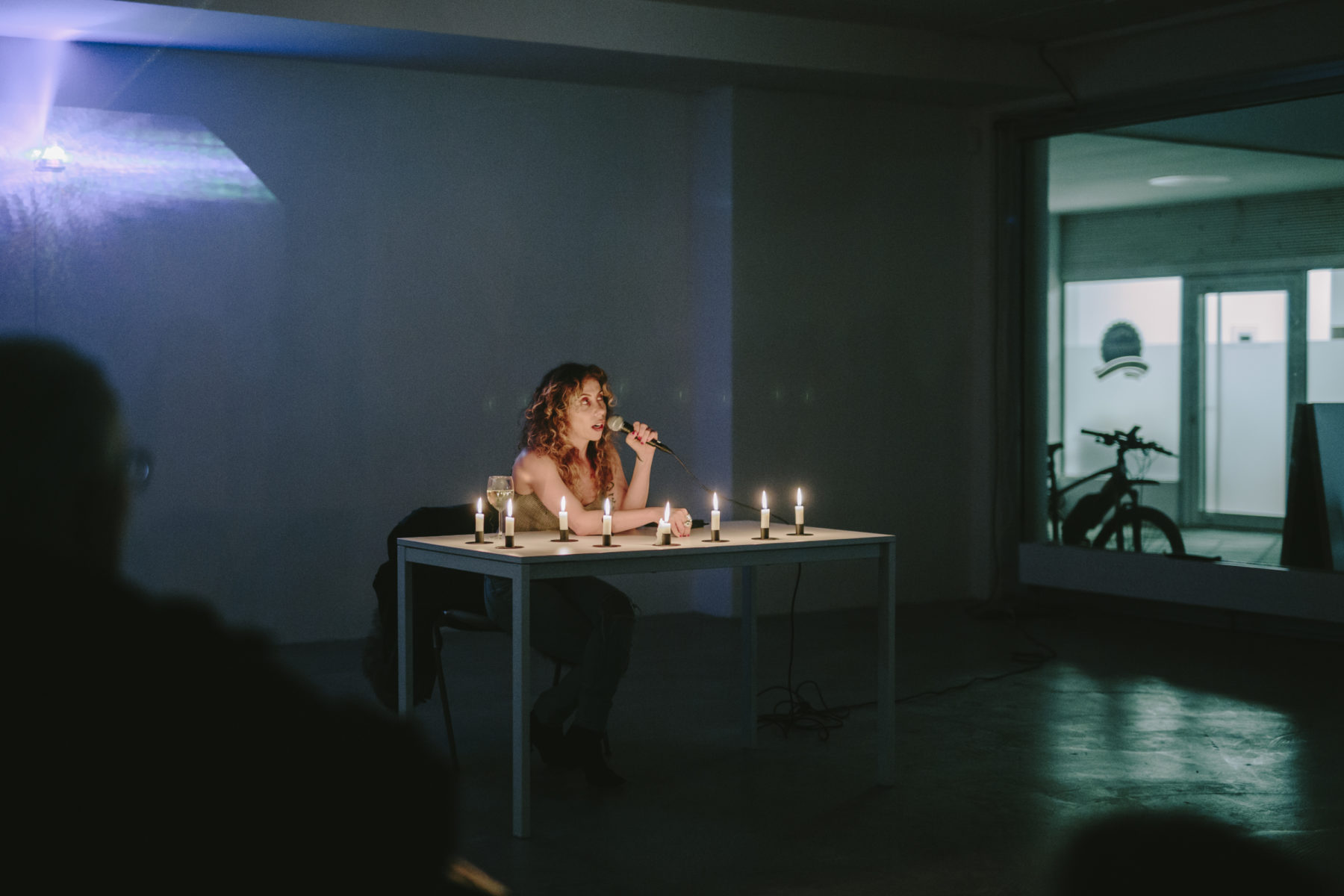
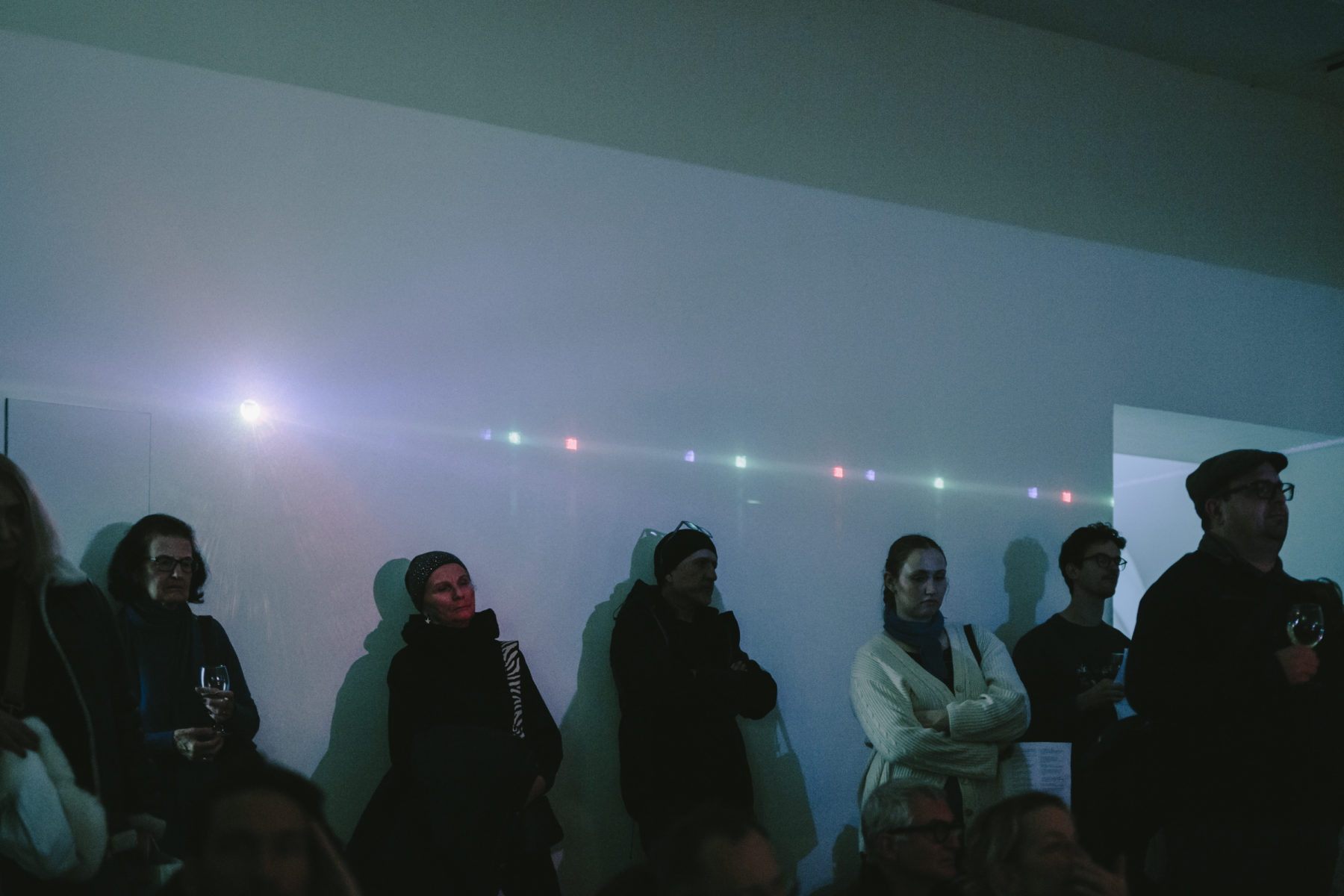

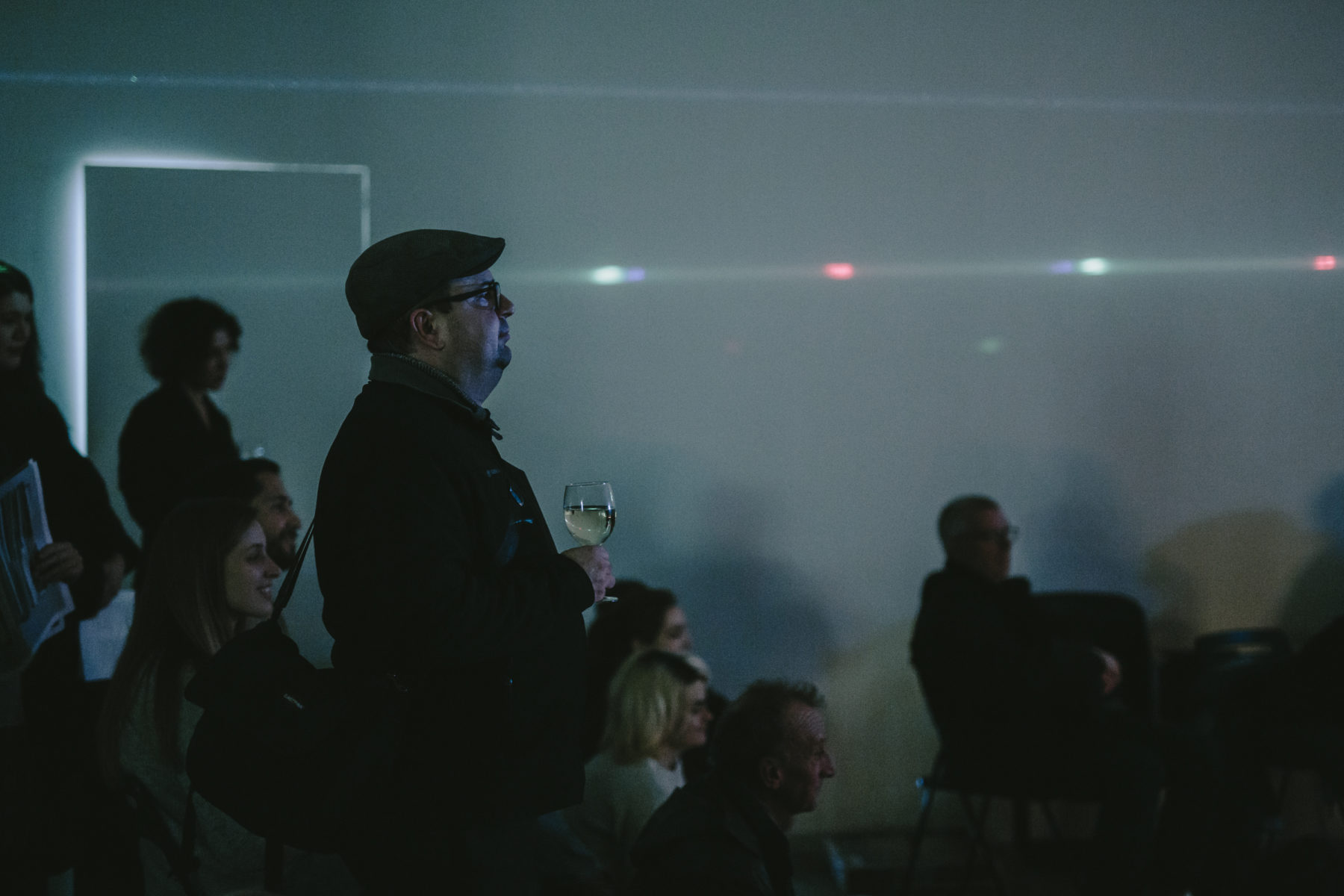
Ezio Gribaudo’s exhibition The Weight of the Concrete culminates with a series of events exploring the nexus of concrete poetry, publishing, graphic design, typography, feminism, and performance, inspired by Gribaudo and Adriano Spatola’s pioneering publication Il Peso del Concreto (1968). The series marks the end of an exhibition and sets the stage for a forthcoming publication published by Axis Axis and Grazer Kunstverein and edited by Tom Engels and Lilou Vidal, revisiting Gribaudo’s legacy and intertwining his graphic work with new and historical poetry, slated for summer 2024 release.
Choreographer and filmmaker Eszter Salamon revisits John Cage’s Lecture on Nothing (1949), a piece she initially engaged with in 2010 through her choreography Dance for Nothing, which paired Cage’s words with her movement. This time, Salamon leaves the physical movements behind, focusing on the sonic aspect of this seminal lecture on nothingness, void, and composition. She adds depth by repeating the lecture after a slowed-down recording by the American cellist and composer Frances-Marie Uitti, creating an auditory exploration of interpretation and transmission. Salamon’s fusion of body, voice, and score sets the framework for a meditation on nothingness amongst Gribaudo’s achromatic, seemingly silent works.
ESZTER SALAMON is a choreographer, artist and performer living between Berlin, Paris, and Budapest. Salamon uses choreography as an activating and organizing agency between various media such as image, sound, music, text, voice, bodily movement and actions. Since 2001 she has created solos and large scale performances, performative installations, and films that have been presented in performing arts venues and museums internationally, including Centre Pompidou, Paris; MoMA, New York City; Museo Reina Sofía, Madrid; MACBA Museu d’Art Contemporani de Barcelona, Barcelona; Serralves Foundation, Porto; Akademie der Künste, Berlin; mumok, Vienna; Kunstinstituut Melly, Rotterdam; Museo Centro Gaiás, Santiago de Compostela; Fondation Cartier, Paris; Museum der Moderne Salzburg, Salzburg; Villa Empain – Boghossian Foundation, Brussels; ING Art Center, Brussels; and KINDL, Berlin. Her exhibition Eszter Salamon 1949 (2014) was presented at Jeu de Paume, Paris, as part of Satellite curated by Nataša Petrešin-Bachelez. Her performative installation Study for the Valeska Gert Pavilion was presented at the 16th Lyon Biennale of Contemporary Art 2022. Her most recent film Sommerspiele (2023) premiered at Akademie der Künst, Berlin, and was presented during Hors Pistes 2024 at Centre Pompidou.

Ezio Gribaudo’s exhibition The Weight of the Concrete culminates with a series of events exploring the nexus of concrete poetry, publishing, graphic design, typography, feminism, and performance, inspired by Gribaudo and Adriano Spatola’s pioneering publication Il Peso del Concreto (1968). The series marks the end of an exhibition and sets the stage for a forthcoming publication published by Axis Axis and Grazer Kunstverein and edited by Tom Engels and Lilou Vidal, revisiting Gribaudo’s legacy and intertwining his graphic work with new and historical experimental poetry, slated for summer 2024 release.
Responding to Il Peso del Concreto, Jesper List Thomsen is set to deliver readings from two texts, Avoiding The Genius (2017) and Blackbirds (2018), each unraveling the complex ties binding body, language, and image. Avoiding The Genius draws upon language as a tool to dissect and articulate the body, crafting a method that operates like a drawing—tracing forms and lines, portraying the body in a pose of defiance, capturing resistance through physical and linguistic expression. Blackbirds delves into the nuanced evolution of an individual’s bond with their foundational language, charting a journey from initial learning phases to the eventual, unavoidable decline of linguistic engagement. Together, these texts illuminate Thomsen’s engagement with how one portrays and perceives physical and linguistic selves in the world.
JESPER LIST THOMSEN (b.1978, Denmark) is an artist based in London and Torino. He works with text, painting, sculpture and performance. Recent exhibitions and performances have taken place at MACRO, Rome; Kölnischer Kunstverein, Cologne; West Den Haag, Den Haag; Braunsfelder, Cologne; Fanta-MLN, Milan; Radio Athènes, Athens; Hot Wheels Athens, Athens; Parrhesiades, London; ICA, London; Künstlerhaus Stuttgart, Stuttgart; Bureau des Réalités, Brussels. BASE BASE, a book-length collection of his writings was published by Juan de la Cosa, Mexico City/London in 2018 and his book FREEEee was published by L’Esprit de l’Escalier, London/Helsinki in 2021.

The Weight of the Tongue is a sound program that is presented in the framework of The Weight of the Concrete by Ezio Gribaudo. It explores the vocalization of experimental and concrete poetry. The program gathers the voices of Katalin Ladik, Tomaso Binga, CAConrad, Susan Howe and David Grubbs, Nat Marcus, Bryana Fritz, Hanne Lippard, and Patrizia Vicinelli.
On the occasion of the opening of The Weight of the Concrete, Katalin Ladik, Nat Marcus, and Bryana Fritz will present live performances of their contributions.
Katalin Ladik (b. 1942, Serbia) lives and works in Budapest. From her background in poetry and theater in the early 1960s to the present day, Ladik has employed multiple formats in her work such as performance, sound art, collage, drawing mail art and photography, while also often drawing on the multicultural and multi-ethnic environments of her native Eastern Europe. Yet throughout this broad range of artistic expression, Ladik’s work is at all times grounded in poetry, whether poetry as text, or poetry in a more expanded sense, such as concrete and visual poetry, musical poetry and poetic performance. Her most recent exhibition, Ooooooooo-pus, is a retrospective collaboratively organized by Haus der Kunst in Munich (2023), Ludwig Forum in Aachen (2023), and the Moderna Museet in Stockholm (2024).
Bryana Fritz (b. 1989, United States) is a choreographer, dancer, and writer. She works at the intersection between poetry and performance often in duet with the user interface of OS X. Her work is fed by a continued interest in medieval literature, fanfiction, media studies, and histories of illiteracy. She also collaborates with Henry Andersen under the moniker Slow Reading Club. As a performer, Fritz worked with Anne Teresa de Keersmaeker, Xavier le Roy, Boris Charmatz, Michiel Vandevelde, and Femke Gyselinck.
Nat Marcus (b. 1993, United States) is a poet, designer, DJ, and co-editor of TABLOID Press, a publishing house and media imprint founded in Berlin in 2014. Her poetry, art criticism, and lyric journalism have recently appeared in Arts of the Working Class, The Ransom Note, and Edit. Marcus has participated in poetry readings and performances in venues such as KW Institute for Contemporary Art (Berlin), Haus am Waldsee (Berlin), and Ny Carlsberg Glyptotek (Copenhagen). In the last years, she has also exhibited at SYSTEMA (Marseille), Kunstverein München (Munich), Mint (Stockholm), and Felix Gaudlitz (Vienna). She holds a residency at the Berlin-based radio station Refuge Worldwide, and as a vocalist has collaborated with Ulla Straus, exael, Perila, and Soho Rezanejad. Aside from the collections of silkscreened clothing Marcus designs and releases under the TABLOID imprint, she has produced graphics for numerous record labels and collectives including Uzuri, West Mineral Ltd., 3XL, Ediciones Capablanca, and Morph.
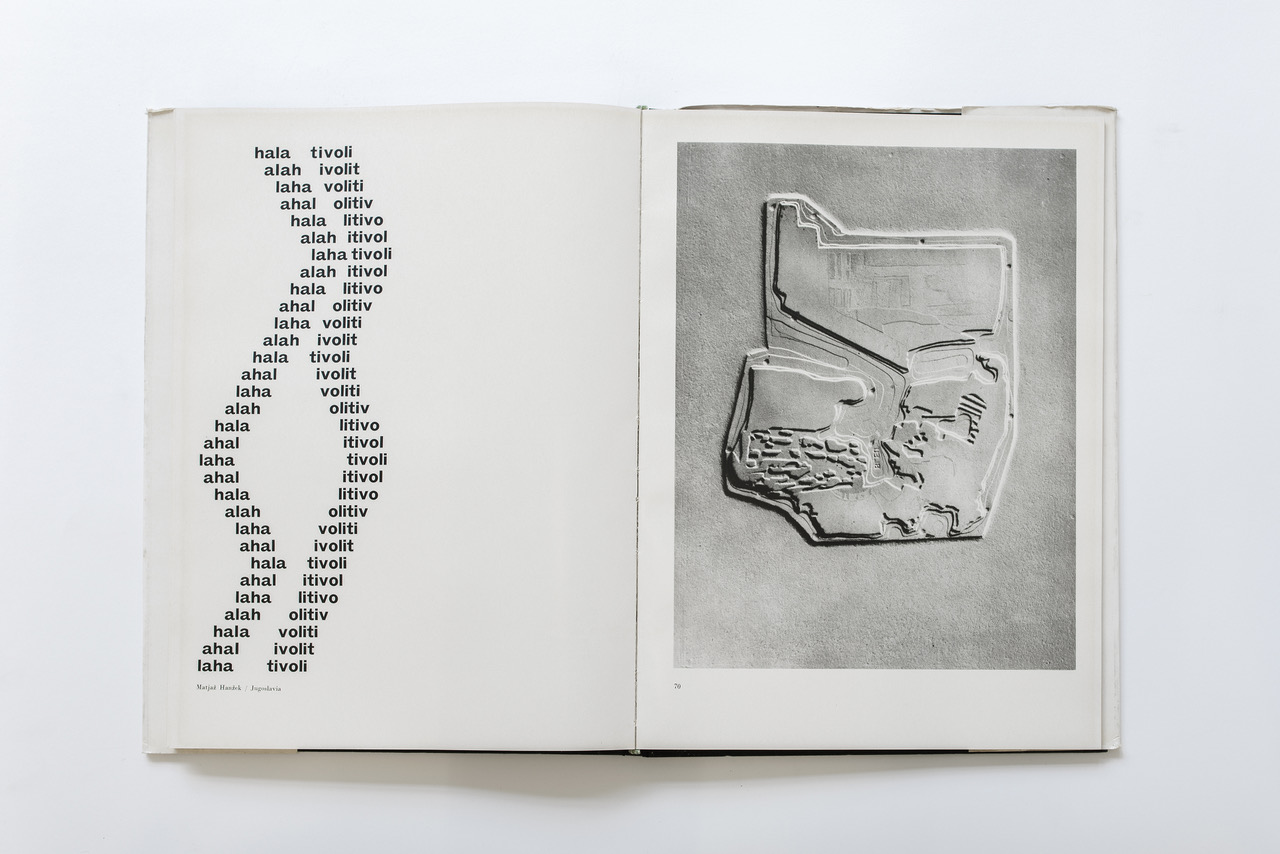
By way of movement and speech, curator and writer Raimundas Malašauskas will elaborate on sekretas, a peculiar Lithuanian term that both means secret and secretary, the old-fashioned piece of furniture that serves as a place for reading, writing, and storing paper. sekretas is also the title of Marija Olšauskaitė’s exhibition and the name of a popular game played by youngsters in Lithuania. Playing it, children would enter a courtyard or a garden and place small objects under a piece of glass: flower petals, pictures, a note, golden bottle caps, shells, and other characteristic elements would be organized and composed into a material expression of friendship. Altogether, Malašauskas will dive into the word’s complexity, its multiple meanings, and the many (hi)stories it provokes.
Raimundas Malašauskas (b. 1973, Lithuania) has co-written an opera libretto (Cellar Door by Loris Greaud, Palais de Tokyo, 2008), co-produced a television show (CAC TV, Vilnius, 2004 – 2006), served as an agent for dOCUMENTA (13), released Paper Exhibition, the book of his selected writings (Sternberg Press, 2012), co-curated 9th Baltic Triennial of International Art, Vilnius (2005), the 9th Mercosul Biennal, Porto Alegre (2013), the 9th Liverpool Biennale (2017), and exhibited his childhood paintings in a choregraphic composition by Alix Eynaudi (2019). His most recent projects are trust & confusion, an eight-month-long live art exhibition at Tai Kwun Contemporary, Hong Kong (2021), 914, the Russian Pavilion in the 59th Venice Biennale (closed), and Mars Returns, a 14-hour long event at Mykolas Žilinskas Gallery, Kaunas (2022).
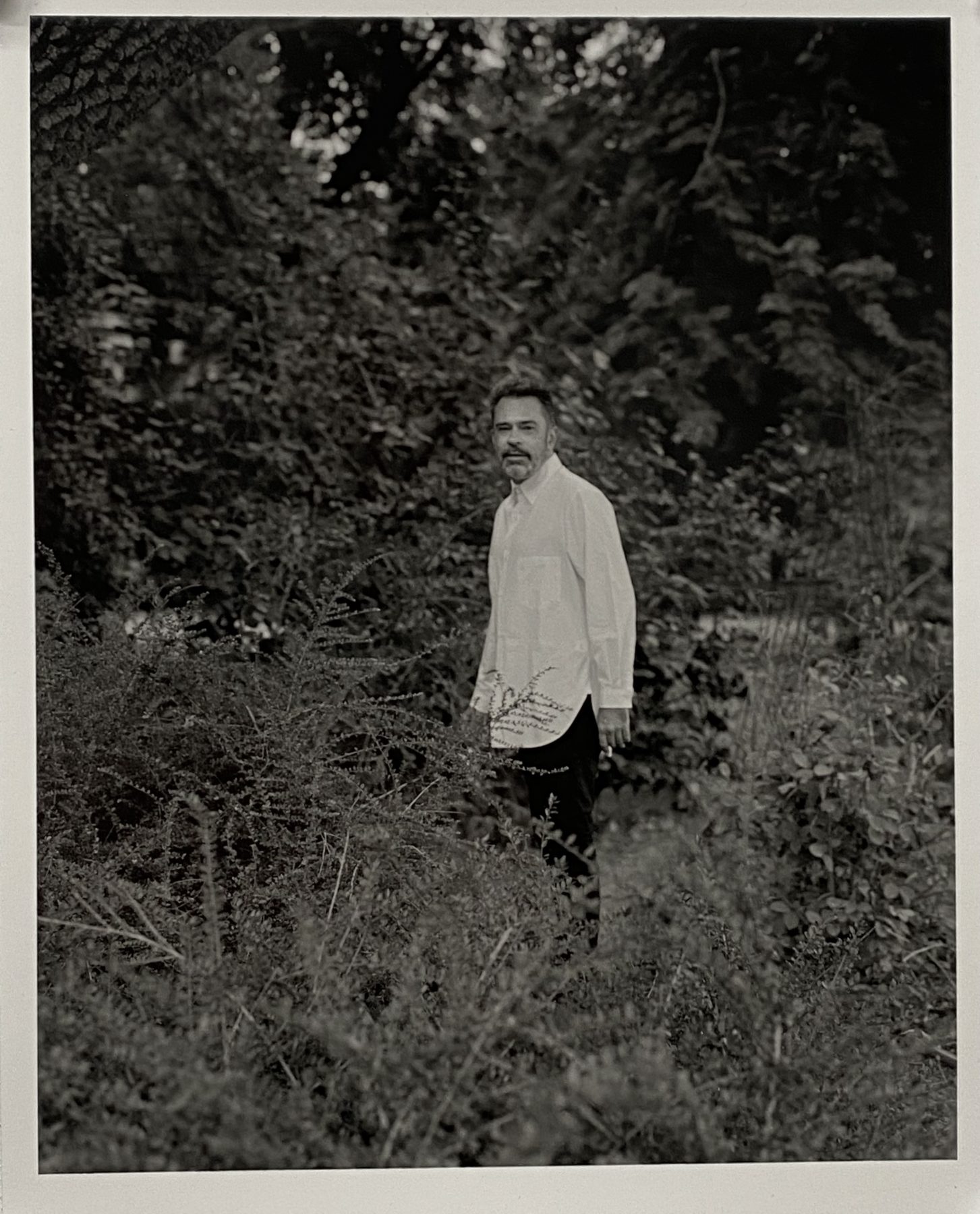
Dialoge is a discursive program organized by the newly founded Center for Contemporary Art at the University of Graz, which will take place from May 16-21 at the Grazer Kunstverein. Under the title Art – Political Responsibility – Social Justice the program examines current socio-political issues. The program focuses on political conflict zones in Europe, diversity in the context of questioning and redefining concepts of identity, as well as social justice, colonialism, and imperialism.
Theoretical and artistic responses to stereotyping and attributions related to gender form the core of the third Dialog. With contributions by David Getsy (lecture), Alexandra Hammond (performance), Furusho von Puttkammer (performance), Masha Godovannaya (lecture), and Bárbara Wagner and Benjamin de Burca (screening).
For the most recent schedule, please visit the website of the Center for Contemporary Art, University of Graz.
Dialoge is a discursive program organized by the newly founded Center for Contemporary Art at the University of Graz, which will take place from May 16-21 at the Grazer Kunstverein. Under the title Art – Political Responsibility – Social Justice the program examines current socio-political issues. The program focuses on political conflict zones in Europe, diversity in the context of questioning and redefining concepts of identity, as well as social justice, colonialism, and imperialism.
The second Dialog, entitled Trust & Intransigence, will place a special emphasis on European conflict zones. It provides a platform for exchange between scholars and artists. With contributions by Saddam Jumaily (Artist Talk), Marita Muukkonen, Ivor Stodolsky (Conversation), Jasmina Cibic (Artist Talk), Alexandra Hammond (Performance), Ekaterina Degot (Statement), Vedran Dzihic (Lecture) and Anri Sala (Screening).
For the most recent schedule, please visit the website of the Center for Contemporary Art, University of Graz.
She gave it to me I got it from her is both a book and a choreography performed for five spectators at the time. By way of the voice and an intricate composition of gestures, Clara Amaral guides the spectator through the different chapters of the book. Developed and written by the artist herself, the publication focuses on the matrilineal passing down of reading and writing skills—from mother to daughter, generation upon generation. The narrative that unfolds traces Amaral’s family history and reveals a historical transition from illiteracy to the ability to read and write. Laying out this transformation in a poetic manner, Amaral gives insight into the power relations articulated by the presence and absence of the capacity to read and write and how this plays into the formation of identity, be it personal or collective. As such, the performative reading articulates the book anew as both a script, a performance, and an archive.
Language: English
Duration: 60 minutes
Price: 5 Euro (free for members)
Due to very limited capacity, it is required to reserve a seat by writing to office@grazerkunstverein.org
Clara Amaral (b. 1984, Portugal; lives in Amsterdam) is an artist working with text and performance. Her interdisciplinary artistic practice questions what it means to be a reader, to be a writer, aiming to expand existing modes of reading, writing, and publishing. Central to her practice is the investigation of publishing modalities and the performative aspect of writing and language, through an intersectional feminist approach. Her works have been presented in The Netherlands, Portugal, Belgium, Spain, Sweden, and Switzerland. Amaral is the initiator of the online publishing platform misted.cc.
Writer, choreographer and performer Clara Amaral; Graphic design Ronja Andersen and Karoline Swiezynski; Copy editor Isabelle Sully; Conceptualization and fabrication of objects Olga Micińska in dialogue with Clara Amaral; Publisher Kunstverein Publishing
She gave it to me I got it from her was supported by Mondriaan Fonds, Amsterdam; Veem House for Performance, Amsterdam; Members of Kunstverein, Amsterdam; Alkantara, Lisbon; Teatro do Bairro Alto, Lisbon
The presentation of She gave it to me I got it from her at Grazer Kunstverein is made possible with the support of Mondriaan Fonds, Amsterdam.

